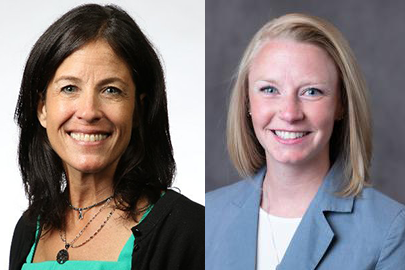
Trial Spotlight: Selina Luger on the PrE0905 Study for FLT3 Mutated Acute Myeloid Leukemia
September 30, 2021
A New Guide Encourages the Use of Language that is Respectful of Patients, Free of Stigma, Inclusive, and Equitable
September 30, 2021Should Participants Know the Arm to Which They Were Assigned in a Randomized Clinical Trial?

 By Rebecca D. Pentz, PhD
By Rebecca D. Pentz, PhD
It is well established that aggregate results of research should be shared with participants once the trial is complete and published. Fernandez et al. (2009) list the benefits and concerns:
“These benefits include recognition of the participants’ contribution to research, enhancement of the notion that participants feel valued and appreciated, dissemination of more accurate and nuanced results than may be portrayed in the lay media, providing of information that may be useful for short- and long-term medical decision making, and promotion of a broader public understanding of the societal benefits of research. Some authors have voiced caution about establishing a uniform requirement to offer research results, citing the potential for distress in revisiting a diagnosis or death, misunderstanding of adverse information, or anger at results describing unfavorable outcomes. In addition, an equitable process for offering research results to participants raises resource concerns.”1
The mechanism for sharing these results is well described and is currently in place in the Children’s Oncology Group (COG). However, sharing the arm to which a participant is randomized is a more personal sharing of results. In cooperative group trials, this information would only be available from the individual site. Because this kind of information could lead to distress if the arm was less effective, it is doubly important to have the information shared by the physicians at the participants’ site 2.
However, this does not mean that this information should not be shared. It should be offered out of respect to the participant as a partner in research. The ethical imperative is that we must not treat the patient as a mere subject but as a participant partner, who therefore has rights to information about the trial to which they contributed. It is best to have the participant’s own team or at least a physician at the known institution share this information, since it has the potential to cause distress. COG recommended training physicians to conduct these conversations so that they are most helpful 2.
It also should be noted that not all participants want to receive this level of information, so they should be offered the information, but it should not be insisted that they receive it.
I recommend that sites in cooperative group trials be prepared to discuss the results with their participants once the trial data is published. An ideal way of doing this is to post the aggregate results on the cooperative group’s website and then allow the participants to contact their local site if they so choose.
Dr. Pentz is a Professor of Hematology and Oncology in Research Ethics at Winship Cancer Institute, Emory University School of Medicine. She works directly with innovative oncology researchers to develop and design cutting edge ethical research.
1. Fernandez CV, Gao J, Strahlendorf C, et al. Providing research results to participants: attitudes and needs of adolescents and parents of children with cancer. Journal of clinical oncology : official journal of the American Society of Clinical Oncology 2009;27:878-83.↩
2. Fernandez CV, Ruccione K, Wells RJ, et al. Recommendations for the return of research results to study participants and guardians: a report from the Children's Oncology Group. Journal of clinical oncology : official journal of the American Society of Clinical Oncology 2012;30:4573-9.↩
![ECOG-ACRIN logo[19516]275×75](https://blog-ecog-acrin.org/wp-content/uploads/2021/03/ECOG-ACRIN-logo19516275x75.png)
